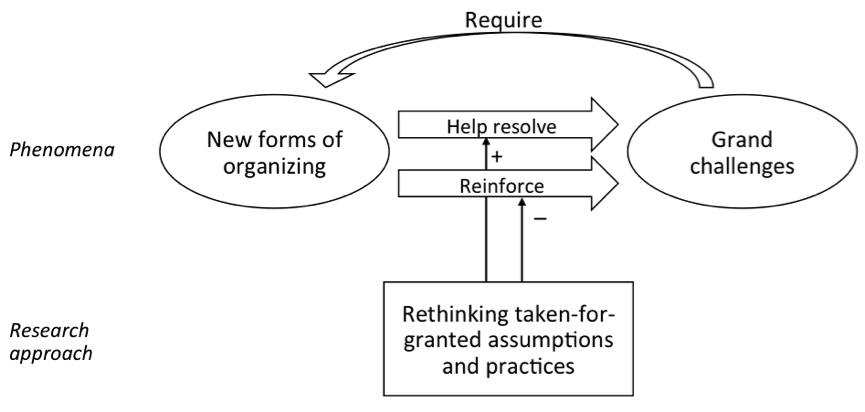Let me share a couple of links related to AI, entrepreneurship, and grand challenges – all in German:
- A book chapter on AI & Future of Work.
- Panel discussion on AI in the service for humans.
- Two podcasts on entrepreneurship, innovation & grand challenges here and here.
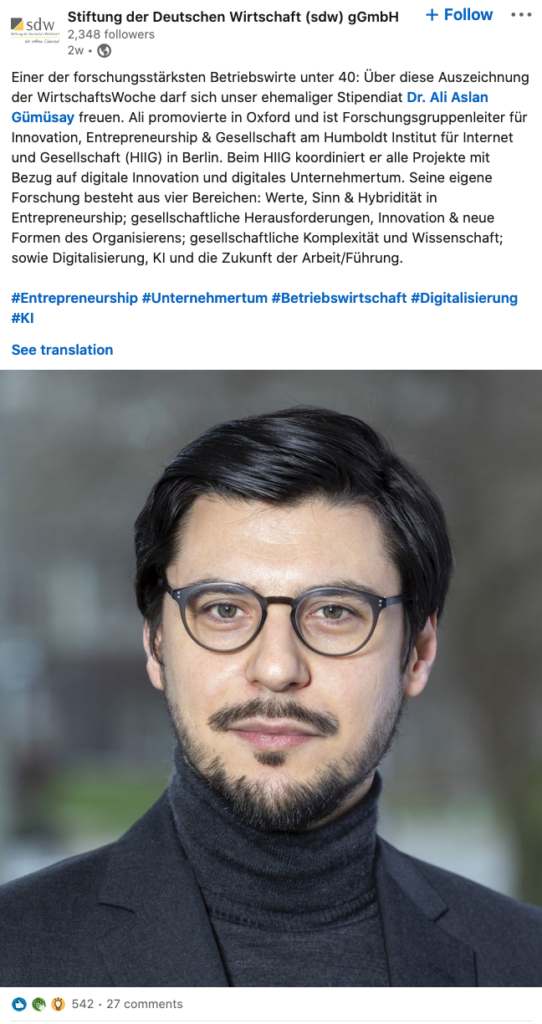
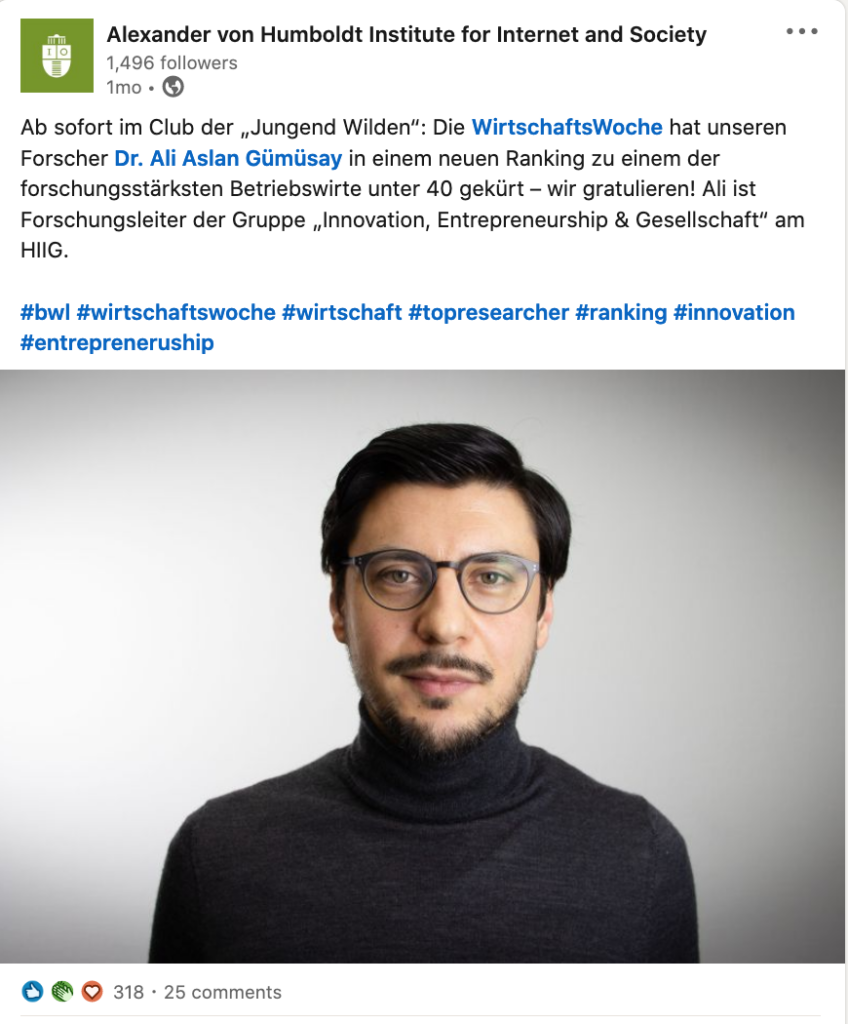
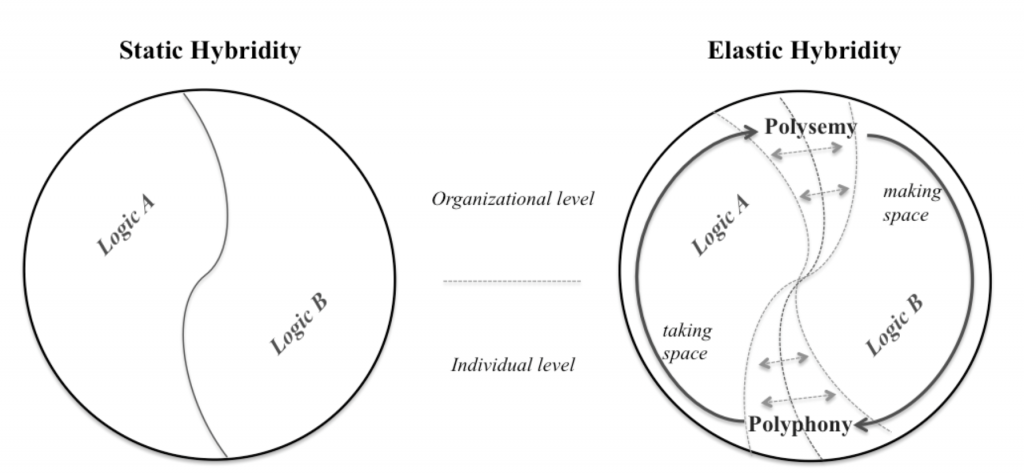
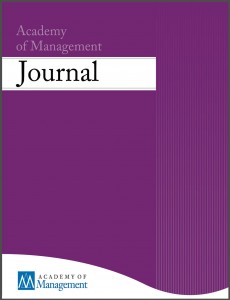 Tim Morris has been published at the Academy of Management Journal. It is entitled
Tim Morris has been published at the Academy of Management Journal. It is entitled 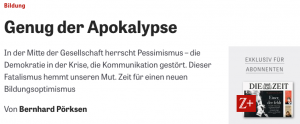
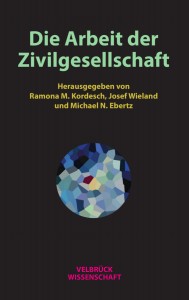 Dieses Spannungsfeld der Temporalität des Wirkens, in der eben nicht nur Vergangenheit zählt, sondern auch die Zukunft auf uns einwirkt, hat Walter Benjamin (2010) treffend umschrieben: „Es gibt ein Bild von Klee, das Angelus Novus heißt. Ein Engel ist darauf dargestellt, der aussieht, als wäre er im Begriff, sich von etwas zu entfernen, worauf er starrt. Seine Augen sind aufgerissen, sein Mund steht offen und seine Flügel sind ausgespannt. Der Engel der Geschichte muß so aussehen. Er hat das Antlitz der Vergangenheit zugewendet. Wo eine Kette von Begebenheiten vor uns erscheint, da sieht er eine einzige Katastrophe, die unablässig Trümmer auf Trümmer häuft und sie ihm vor die Füße schleudert. Er möchte wohl verweilen, die Toten wecken und das Zerschlagene zusammenfügen. Aber ein Sturm weht vom Paradiese her, der sich in seinen Flügeln verfangen hat und so stark ist, daß der Engel sie nicht mehr schließen kann. Dieser Sturm treibt ihn unaufhaltsam in die Zukunft, der er den Rücken kehrt, während der Trümmerhaufen vor ihm zum Himmel wächst. Das, was wir den Fortschritt nennen, ist dieser Sturm.“
Dieses Spannungsfeld der Temporalität des Wirkens, in der eben nicht nur Vergangenheit zählt, sondern auch die Zukunft auf uns einwirkt, hat Walter Benjamin (2010) treffend umschrieben: „Es gibt ein Bild von Klee, das Angelus Novus heißt. Ein Engel ist darauf dargestellt, der aussieht, als wäre er im Begriff, sich von etwas zu entfernen, worauf er starrt. Seine Augen sind aufgerissen, sein Mund steht offen und seine Flügel sind ausgespannt. Der Engel der Geschichte muß so aussehen. Er hat das Antlitz der Vergangenheit zugewendet. Wo eine Kette von Begebenheiten vor uns erscheint, da sieht er eine einzige Katastrophe, die unablässig Trümmer auf Trümmer häuft und sie ihm vor die Füße schleudert. Er möchte wohl verweilen, die Toten wecken und das Zerschlagene zusammenfügen. Aber ein Sturm weht vom Paradiese her, der sich in seinen Flügeln verfangen hat und so stark ist, daß der Engel sie nicht mehr schließen kann. Dieser Sturm treibt ihn unaufhaltsam in die Zukunft, der er den Rücken kehrt, während der Trümmerhaufen vor ihm zum Himmel wächst. Das, was wir den Fortschritt nennen, ist dieser Sturm.“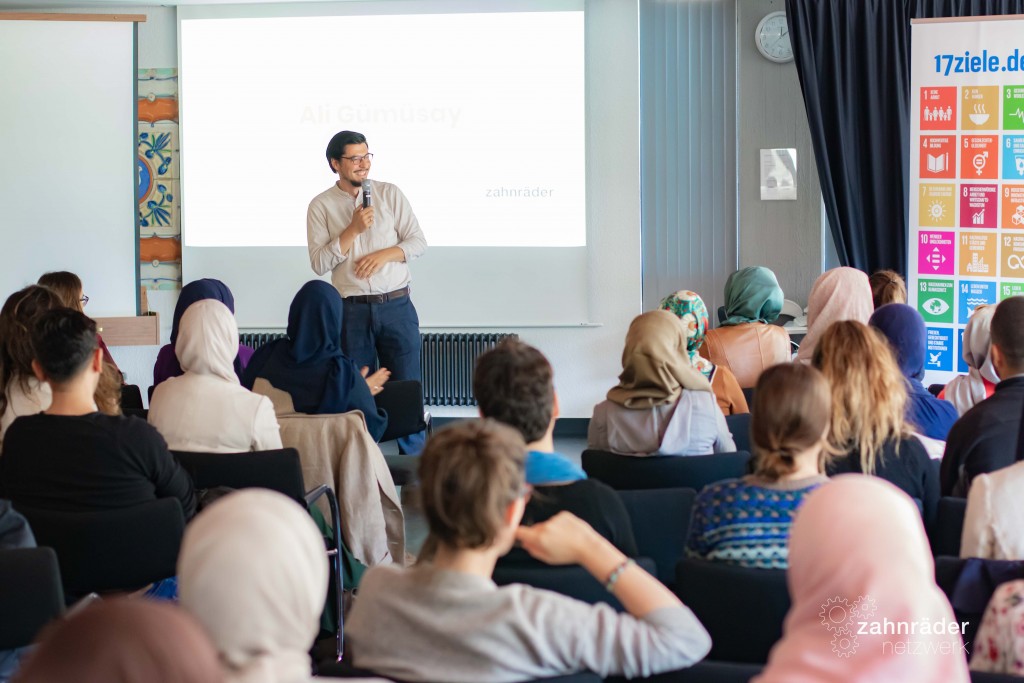
 New piece on the sharing economy, grand challenges, social movement, platforms, and refugees fresh out at Academy of Management Discoveries.
New piece on the sharing economy, grand challenges, social movement, platforms, and refugees fresh out at Academy of Management Discoveries.  funding for our scientific network. Over the next 3 years the network studies the relationship between societal grand challenges and new forms of organizing.
funding for our scientific network. Over the next 3 years the network studies the relationship between societal grand challenges and new forms of organizing.